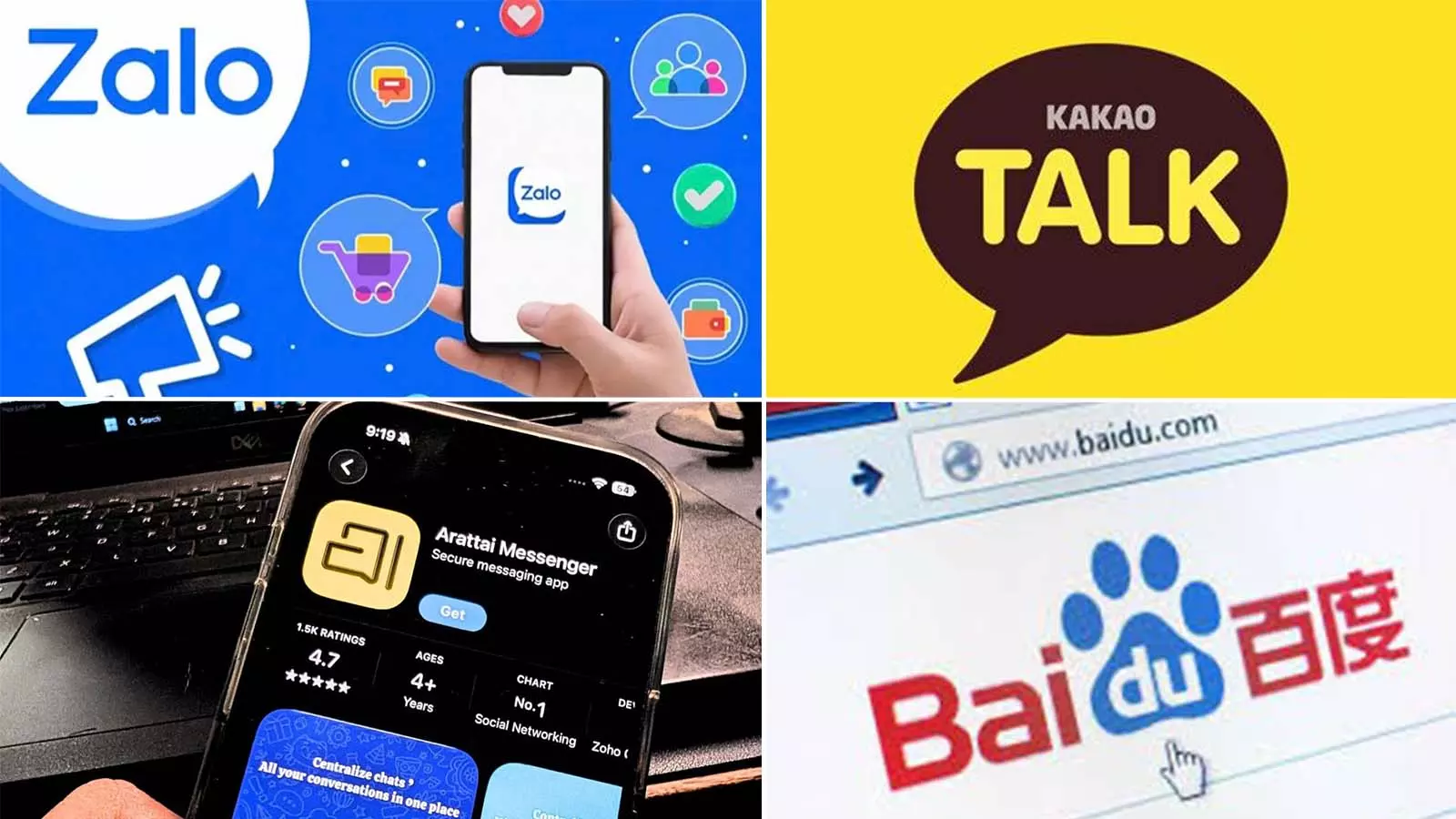
Vietnam's messaging app is called Zalo, while China had an app called Toilet, launched as a competitor to the WeChat platform. It failed to succeed and became a social shopping service called Haoji in 2019
Arattai gets flak for Tamil name; check out titles of 5 other global apps
Arattai gained traction but faced criticism for being too regional and lacking global appeal with its Tamil moniker; check out other names for apps around the world

Zoho’s launch of Arattai, a homegrown messaging app, has stirred both excitement and controversy.
Marketed as India’s answer to WhatsApp, this homegrown app has quickly gained traction—surging from just 3,000 users to over 3.5 lakh downloads within three days, even surpassing WhatsApp in certain app store categories. However, having got its name from the Tamil word “banter”, Arattai has sparked off a debate over linguistic identity, with critics questioning the choice of a Tamil, regional name for a national platform.
Hard to pronounce
Several Reddit users voiced concerns over the app’s name, arguing that Arattai sound alien to their tongue and difficult to pronounce. This is specially the case for north Indian speakers.
One user commented, “Name it something easier for a north Indian to pronounce, not to end up mispronouncing it."
Not a catchy name
Others had a problem with the name itself. They complained that the title lacks appeal, calling it 'not a catchy name'. Many social media users echoed this sentiment, urging Zoho to consider rebranding for broader acceptance in Hindi-speaking regions, where platforms like WhatsApp and Telegram continue to dominate.
Critics felt the name was too "regional", a challenge to remember and pronounce and suggested it should be short, simple, and universally catchy.
Also read: Made-in-India messaging app 'Arattai' tops app store charts, overtakes WhatsApp
Others helpfully advised that if the company wanted to go global, they needed to change the app’s name from "Arattai".
Better branding
“Arattai such a boomer name, that even Tamil people these days no longer use it. 100 per cent Arattai such a boomer name...", said one user and pointed out that there’s no relatability to the app for someone outside TN. Need better branding for the product for it to be global, the user added.
Meanwhile, entrepreneur and academic Vivek Wadhwa remarked on X: “Just tried India’s WhatsApp killer: Arattai. Already matches WhatsApp in look, feel, and usability. Sridhar Vembu says it’s still alpha and improving fast. Can’t wait for a spyware-free product! My old friend is running engineering himself and asked for feedback. Mine: rename it to something the world can actually spell.”
Interestingly, Arattai is not the first 'unspellable' or unrelatable word for a messaging app. What about Vietnam's messaging app Zalo or China's Baidu? Also, notably, China had an app called Toilet, launched with a focus on privacy and anonymity as a competitor to the dominant WeChat platform. However, it failed to compete with WeChat and quietly pivoted to become a social shopping service named with a tongue twister Haoji in 2019.
China also had 'QQ', the first Chinese Instant Messenger by Tencent to go mainstream and was the primary form of communication in China until the launch of WeChat in 2011. WeChat now dominates the Chinese messenger app space, with over a 90 per cent penetration rate and over 1 billion monthly active users.
Also read: Made-in-India messaging app 'Arattai' tops app store charts, overtakes WhatsApp
Here are five other names of apps and search engines that may seem very 'local' to the tongue, at first:
Baidu is often called China's answer to Google. Like its US counterpart, the Chinese search engine is more than a simple web browser. Its offerings extend into artificial intelligence (AI), cloud computing, and internet services. Among the many AI-driven services is Baidu Fanyi, its machine translation platform.
Baidu literally means 'a hundred times' or 'countless times' in Chinese, a reference to a line from a classical Chinese poem about a persistent search for someone in a crowd.
Zalo: The most popular messaging app in Vietnam, it offers features similar to other global platforms.
The name 'Zalo' in Vietnamese is a blend of two words: 'Zing', the name of the parent company's popular service, and 'alo', which is an informal way to say 'hello' when answering the phone in Vietnamese. Therefore, while it doesn't have a direct Vietnamese word translation for 'Zalo', it's a clever name that combines the company's digital brand with a common everyday greeting.
KakaoTalk: The dominant messaging platform in South Korea, which also has a significant user base in the country. KakaoTalk, commonly referred to as KaTalk in South Korea, is an instant messenger and online services platform operated by Kakao Corporation.
It was launched in 2010 and the app is available on mobile and desktop platforms.
LINE is a straightforward singular name of a popular super-app that originated as a messaging platform but now offers a comprehensive suite of services including messaging, video calls, news, e-commerce, and mobile payments, in Japan, Taiwan, and Thailand.
Viber is a cross-platform voice over IP and instant messaging software application owned by Japanese multinational company Rakuten.

